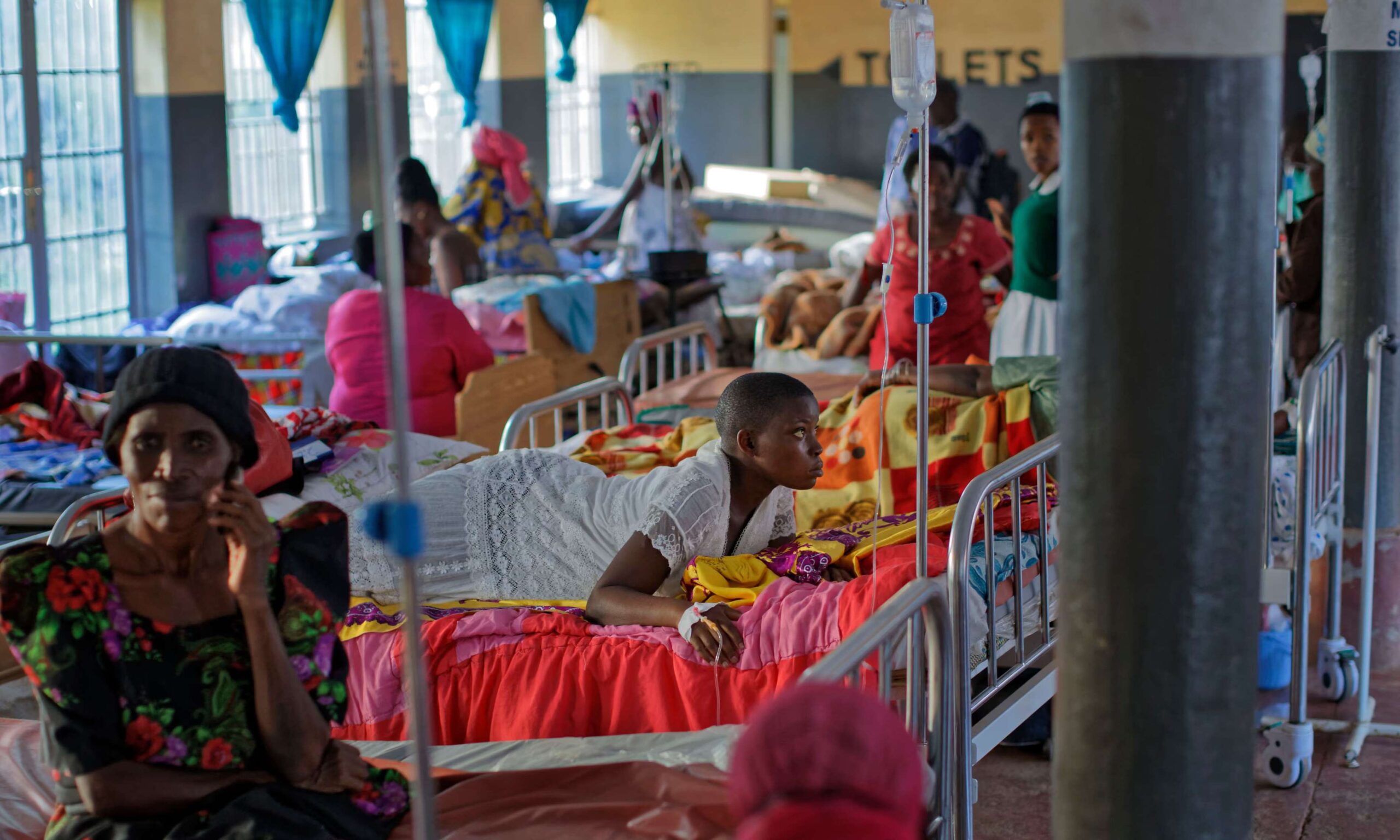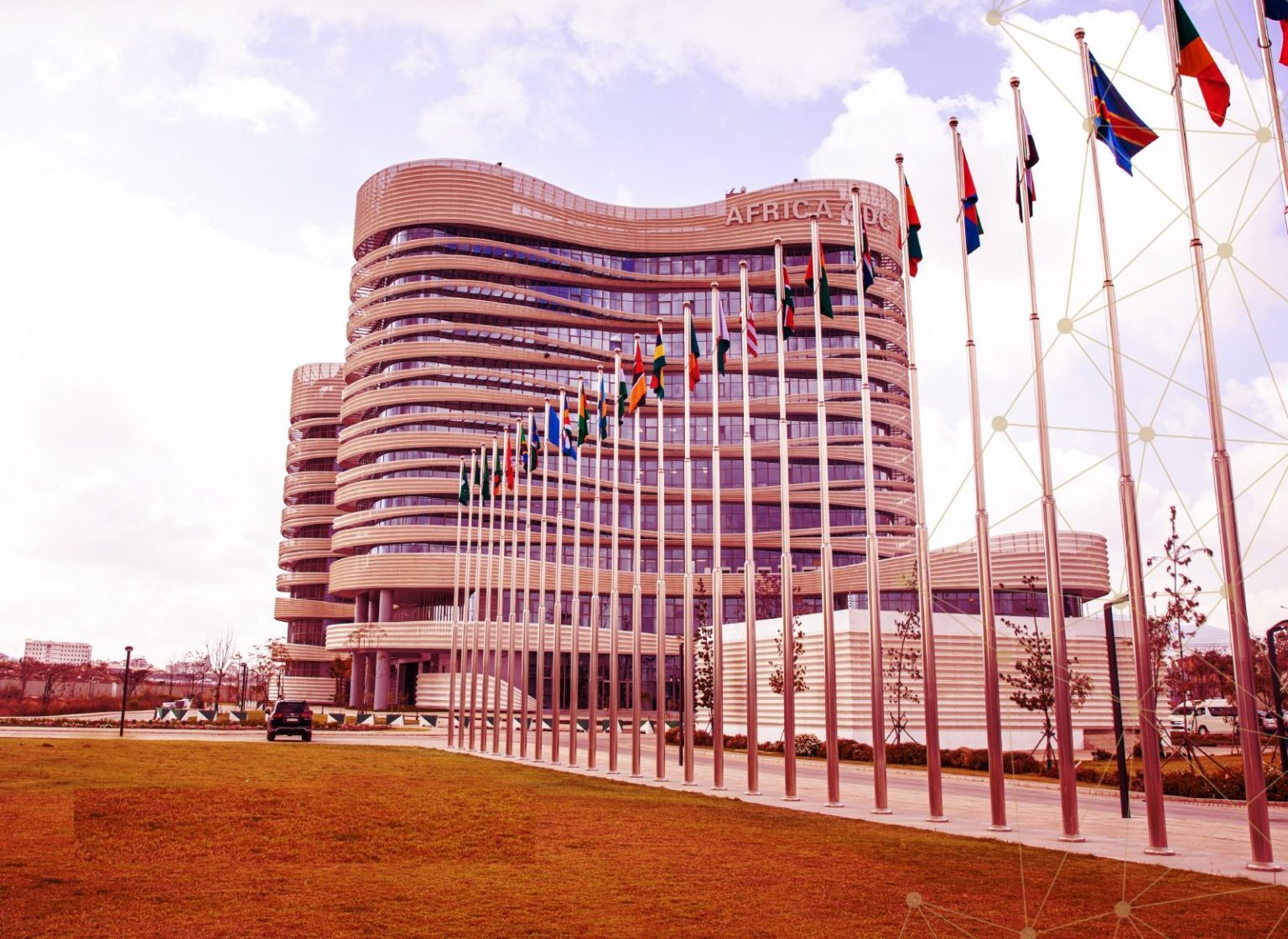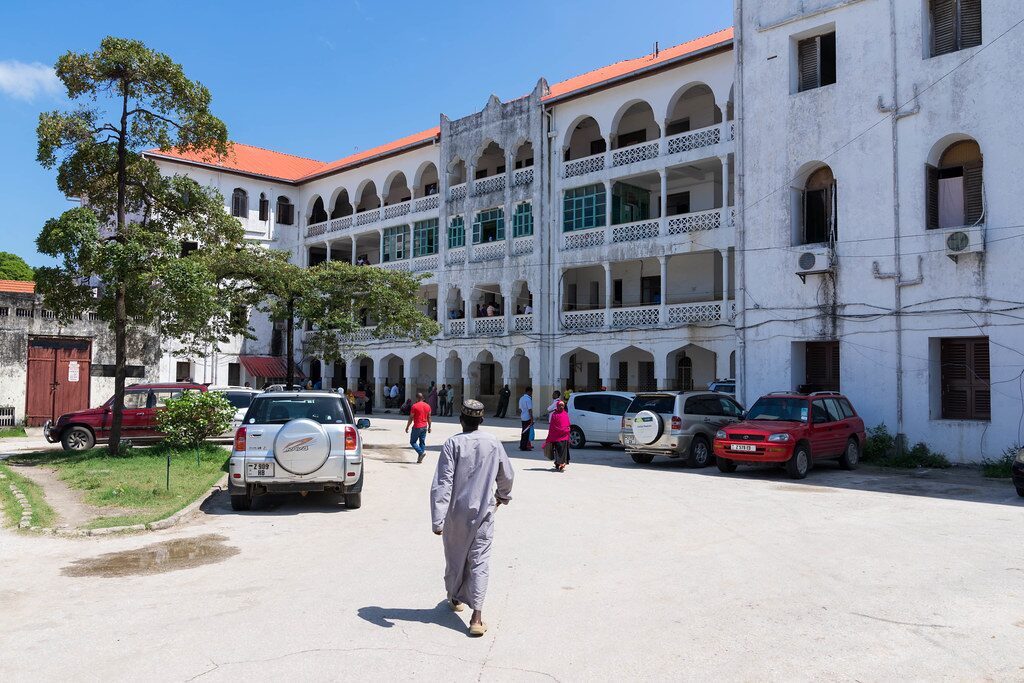
Tuesday, March 25th 2025
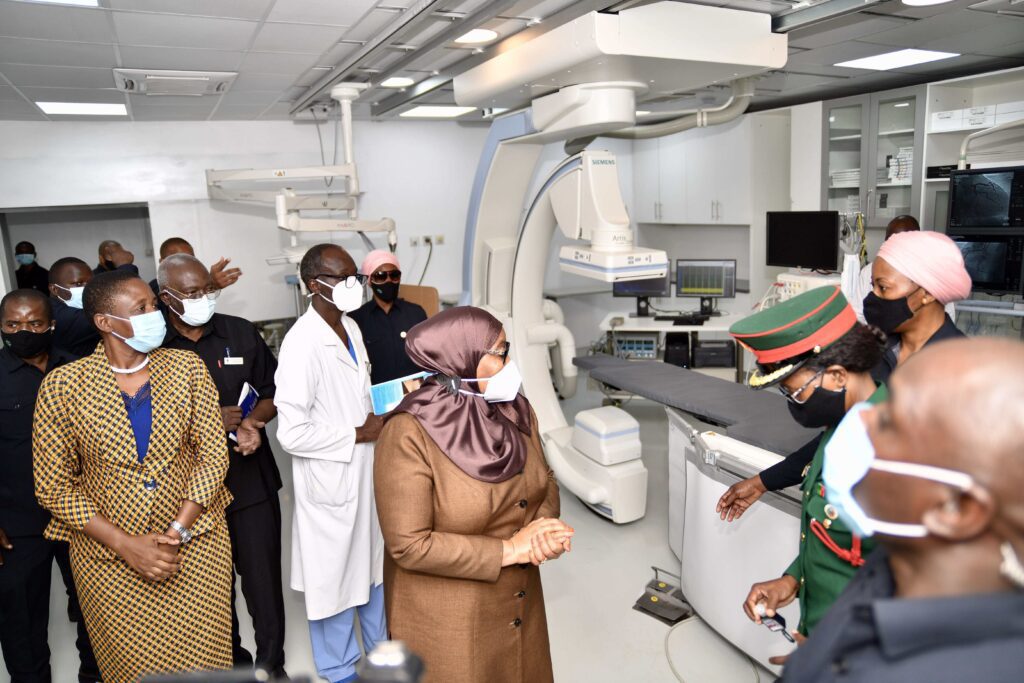
Par inAfrika Reporter
The Jakaya Kikwete Cardiac Institute (JKCI) is a government-owned institution in Tanzania that has become a leader in providing specialized heart care, conducting research, and offering medical training. Over the past four years, JKCI has made significant advancements in expanding its treatment capacity, introducing innovative procedures, and reaching both local and international patients. The institute’s efforts have positioned it as a cornerstone of healthcare in Tanzania, particularly in the field of cardiology, while also improving regional healthcare by sharing expertise with neighboring countries.
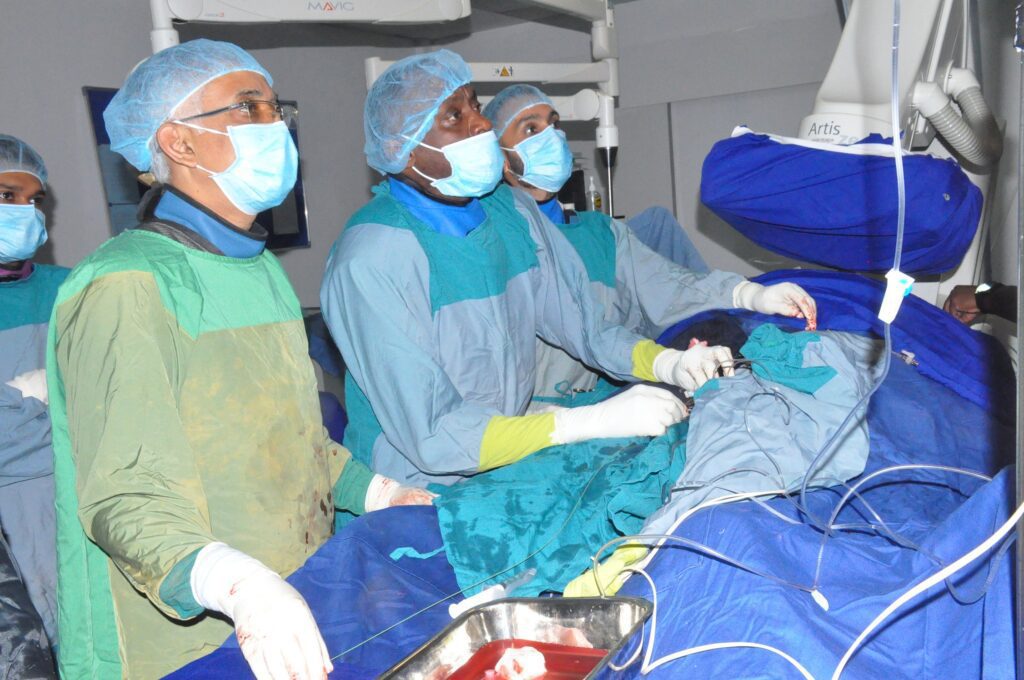
Since its inception, the Jakaya Kikwete Cardiac Institute has treated a total of 745,837 patients. Of these, 674,653 were adults and 71,184 were children. The number of patients who required hospitalization during this period was 30,645, with 25,273 adults and 5,372 children. This indicates a growing need for specialized cardiac care in Tanzania and the capacity of JKCI to meet this demand.
At JKCI’s main facility in Upanga, Dar es Salaam, 513,484 patients were treated, including 470,119 adults and 43,365 children. This reflects the institute’s large patient base, which spans a wide range of cardiovascular conditions. Additionally, 17,668 patients were admitted to the hospital for further care, including 14,580 adults and 3,088 children.
The Dar Group hospital, located in the TAZARA area, treated 278,839 patients, including 238,570 adults and 40,269 children. The number of patients admitted to this facility was 12,977, comprising 10,693 adults and 2,284 children. This shows the extensive reach of JKCI’s cardiac services beyond its main Upanga location, as well as its ability to manage a significant number of patients.
The services provided at JKCI are diverse and comprehensive, addressing a wide array of health concerns. The institute specializes in heart disease treatment but also offers dental care, pediatric services, eye care, ENT (ear, nose, and throat) services, skin clinics, and more. The hospital provides both major and minor surgeries, including those for digestive diseases, liver, kidney, and urology issues.
The breadth of services offered ensures that JKCI is not just focused on treating heart diseases but also on providing holistic care for a variety of medical needs. This comprehensive approach ensures that patients who visit the institute can receive high-quality treatment for their cardiac issues as well as any other conditions they may have.
One of the key initiatives at JKCI has been the outreach programs designed to bring cardiac care to underserved regions. The “Mhe. Dr. Samia Suluhu Hassan Outreach Services” have been implemented in 20 regions across Tanzania and 14 work sites. These programs have benefited 21,324 people, including 20,112 adults and 1,212 children, who underwent heart disease screenings. The outreach services aim to identify heart conditions early and initiate treatment before more serious complications arise.
As a result of these screenings, 8,873 adults and 493 children were found to have heart conditions and were started on treatment. Furthermore, 3,249 patients, including 2,765 adults and 484 children, required specialized care and were referred to JKCI for further treatment. These outreach services have been critical in increasing the early diagnosis of heart disease, particularly in rural and remote areas of Tanzania where healthcare access is limited.
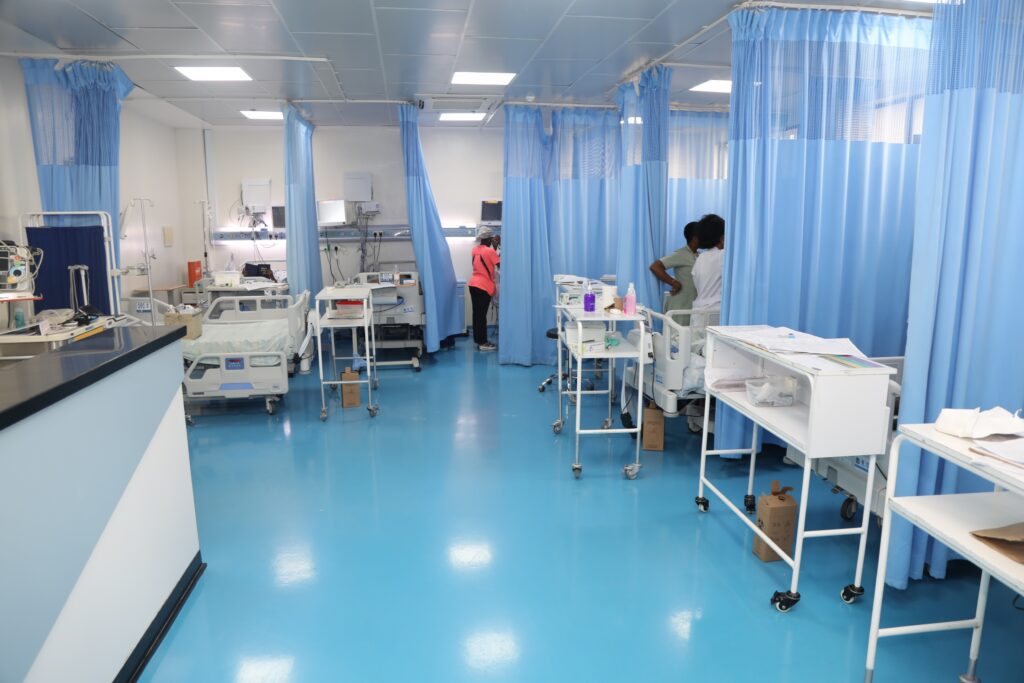
In addition to providing care within Tanzania, JKCI has extended its reach to neighboring countries. Experts from the institute have traveled to Malawi, Zambia, and the Comoros to provide heart care. In these countries, they treated 1,189 patients, including 851 adults and 338 children. These efforts reflect JKCI’s leadership role in the region, where specialized heart care is often scarce. Of the 1,189 patients treated abroad, 262 were referred to JKCI for advanced treatment.
International patients have also come to JKCI for specialized care. Over the past four years, 689 patients from countries such as Somalia, Malawi, Kenya, Rwanda, and the Comoros, as well as from outside Africa, including Armenia, China, Germany, India, Norway, France, and the UK, have received treatment. This highlights the institute’s growing international reputation and its role as a hub for high-quality heart care.
JKCI has also made significant advancements in its surgical offerings. Over the past four years, 2,784 patients underwent major heart surgeries. This includes open-heart surgeries to replace one to three heart valves, coronary artery bypass graft (CABG) surgeries, and surgeries for blood vessels and lungs. Of these surgeries, 1,880 were performed on adults and 904 on children, demonstrating the institute’s ability to handle complex cases in both populations.
In addition to traditional heart surgeries, JKCI has introduced new procedures, such as the minimally invasive transcatheter aortic valve implantation (TAVI) procedure. TAVI allows for the replacement of heart valves without opening the chest, which reduces recovery time and improves patient outcomes. The institute has also expanded its capabilities in treating peripheral artery disease, which affects the legs and neck by improving blood flow in these critical areas.
One of the key components of JKCI’s success has been its use of cutting-edge technology. The institute’s Cathlab (Catheterization Laboratory) is equipped with advanced diagnostic and treatment tools that allow for minimally invasive procedures. Over the past four years, 8,789 patients have been treated in the Cathlab, using special radiation to diagnose and treat conditions such as blocked coronary arteries and to implant heart devices. This technology has been vital in improving the efficiency of treatments and reducing patient recovery times.
Among the 8,789 patients treated, 469 received treatment for heart electrical system issues using the standard equipment, while 109 were treated with Carto 3, an advanced mapping system for diagnosing and treating heart rhythm problems. The use of Carto 3 allows for more precise treatment of arrhythmias, improving outcomes for patients with heart rhythm disorders.
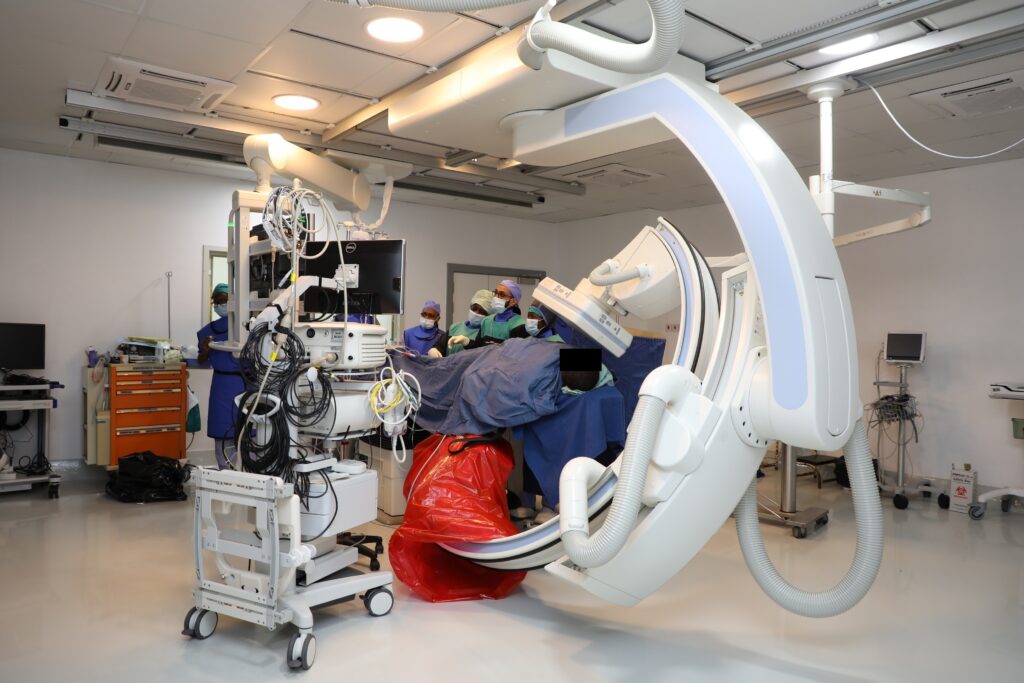
To accommodate the growing number of patients and improve service delivery, JKCI has expanded its facilities. In addition to its main hospital in Upanga, the institute has opened two new clinics for heart disease diagnosis and treatment: one at Mkapa Health Plaza in Kawe and another at Oyster Plaza in Oysterbay. These new clinics help extend the institute’s reach and make cardiac care more accessible to a larger portion of the population.
In terms of infrastructure, the Tanzanian government has invested significantly in JKCI’s growth. A TZS 1.3 billion oxygen production plant was installed at the institute, which ensures that there is a steady supply of oxygen for patients, reducing the reliance on oxygen cylinders. Additionally, the government allocated TZS 2.16 billion for the renovation and expansion of the institute’s intensive care units (ICUs). The pediatric ICU has increased from eight to 16 beds, and the adult ICU has been expanded from eight to 10 beds. These upgrades have allowed JKCI to better manage critical cases and provide high-quality care to patients in need.
As part of its commitment to improving healthcare in Tanzania and the region, JKCI has entered into several partnerships with local and international institutions. The institute has collaborated with the University of Dar es Salaam and the College of Surgeons of Eastern, Central, and Southern Africa (COSECSA) to provide specialized training in cardiac care. These collaborations ensure that healthcare professionals are well-equipped to provide high-quality care and are knowledgeable about the latest advancements in the field.
Additionally, JKCI has partnered with international universities, such as Jagiellonian University in Poland and New York University in the United States, to conduct research and advance the field of cardiology. These collaborations also include research initiatives with the Ifakara Health Institute, which aims to study heart disease and contribute to global knowledge in the field.

